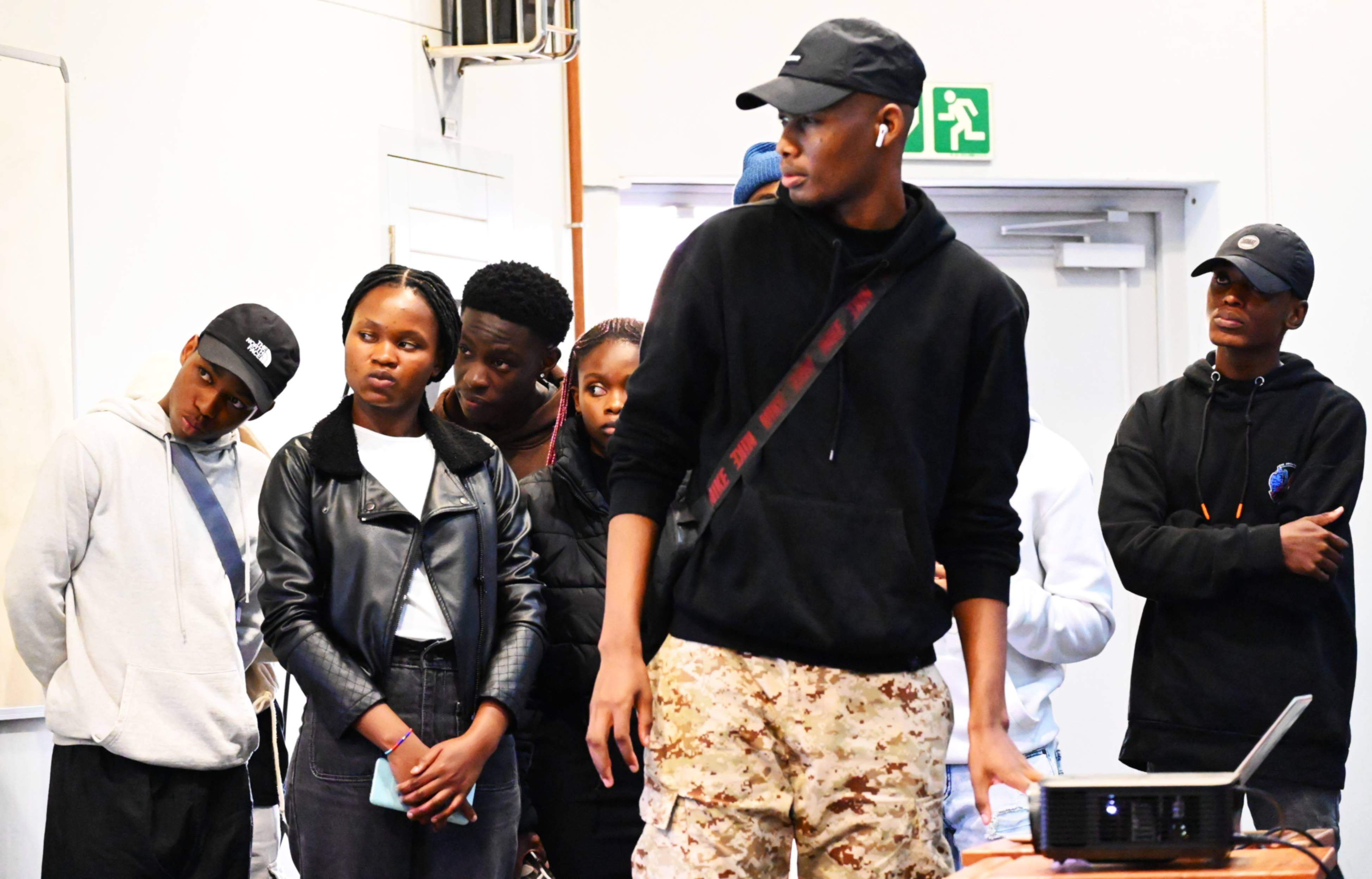THEORY TURNED TO PRACTICE AS STUDENTS CHARGED WITH PRODUCING ICT SOLUTIONS IN HUMAN-COMPUTER INTERACTION PROJECT
Close to 200 WSU second-year ICT students in the business and development department packed the Potsdam Site Auditorium on Monday 7 October to participate in the Human-Computer Interaction (HCI) User Experience Workshop to assess and measure their knowledge base regarding HCI.
Sanctioned under the South Africa-Sweden University Forum (SASUF), a collaborative network involving 40 universities from South Africa and Sweden, the gathering saw the students using
a pre-existing collaborative portal identified by a panel of experts and scholars, to assess, analyze and produce interventions aimed at improving the functionality, and finding solutions to design issues faced by the test portal.
After previously submitting a report of their analyses and solutions to the SASUF panel, the students, divided into approximately 11 groups, faced scrutiny from the judges as they presented and demonstrated their various interventions and solutions.
"The students were tasked with analyzing the portal and subsequently identifying problems with the design of the portal, and producing technical solutions that seek to improve the portal and have it functioning as efficiently and user-friendly as possible," said WSU Human-Computer Interaction lecturer, Nosipho Mavuso.
One of the pillars of SASUF, following its additional funding in 2021 that led to a new three-year phase, has been to implement projects aimed at addressing UN Sustainable Development Goals and Agenda 2030 through various innovative approaches, including virtual exchanges and student involvement, the latter being fulfilled through WSU students’ participation in the WSU User Experience Workshop.
The exercise at WSU, in essence, part of a comparative study, follows a similar project conducted by scholars and researchers from Sweden's Jonkoping University and the University of Gothenburg wherein students from the two institutions were also given the same exercise.
"Central to this project is to exchange experiences in how we teach and how students reciprocate knowledge to learn from each other's experiences and see how we can improve each other's methodologies and views on the world,” said Koponing University Associate Professor of Informatics, Bruce Ferwerda.
One of those WSU students who participated in the project was class representative, Tshegofatso Tlhodi, who described the experience as invaluable owing to the determination shown by the students to work together to produce their designs and prototypes.
Thlodi said the exercise was important in providing a platform for students to showcase their creativity, innovation, and intellect – traits and talents she was pleasantly surprised by.
“It was a great learning experience to work in a group and be exposed to different technical and learning abilities of the different students. We're all different people with different views and experiences and for those to be displayed, and yet not hinder the success of the projects, meant that we could overcome our difference for the sake of the ultimate goal," she said.
She also heaped praise upon the panel of judges for their insightful and sound advice, both at a technical level, as well as the public presentation of one’s project, the latter being a major part of any industry professional’s arsenal.
By Thando Cezula

